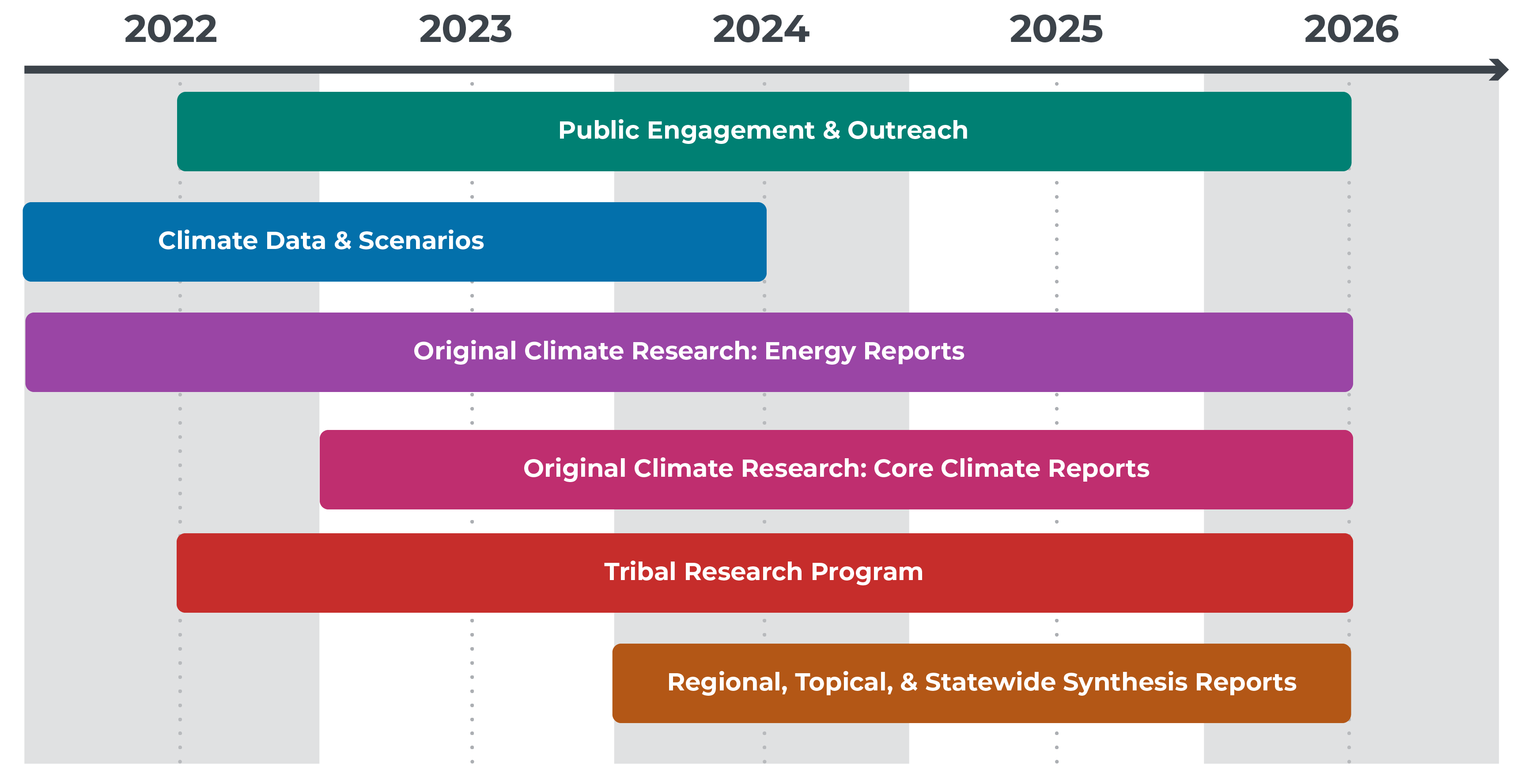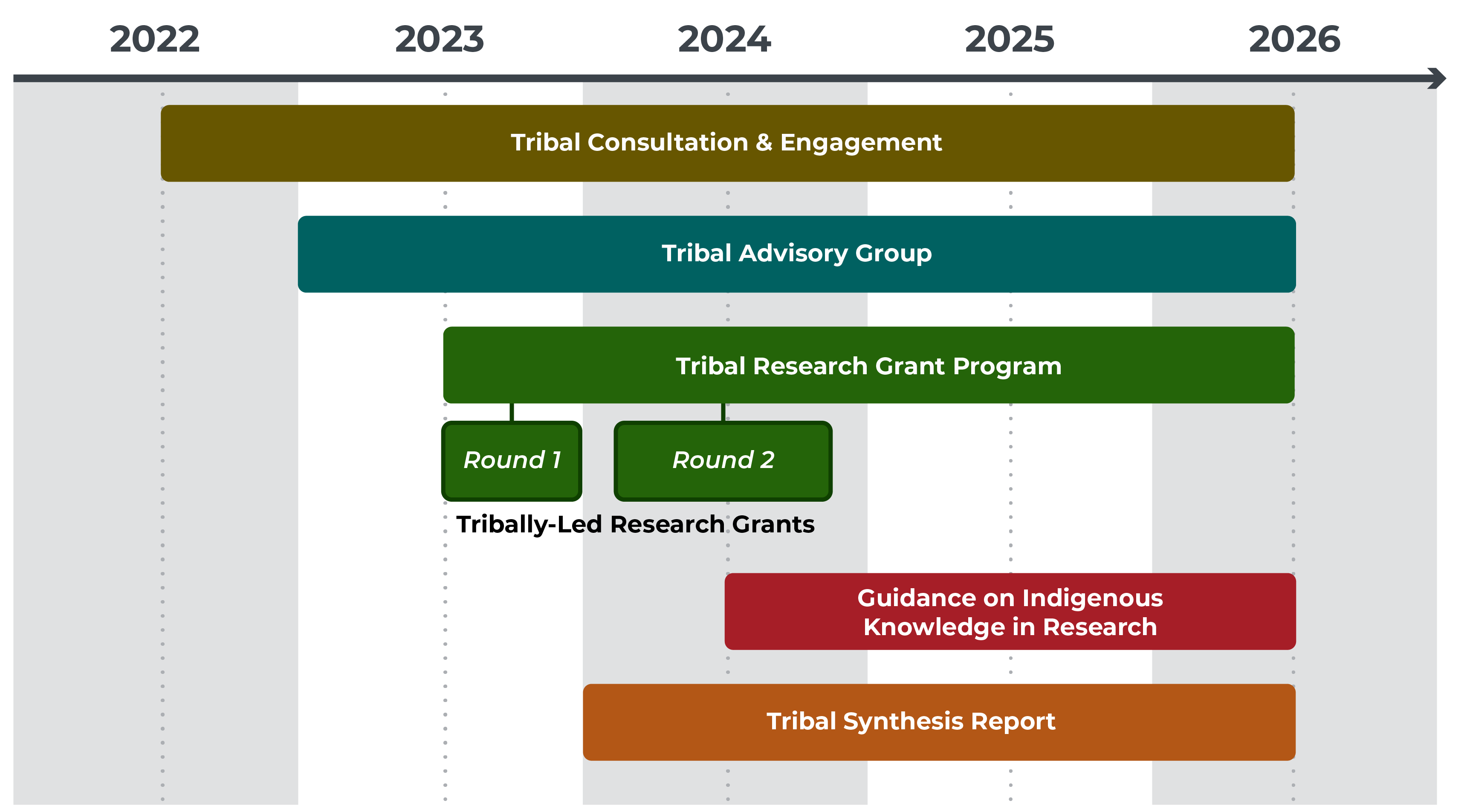Climate Assessment,
Science, and Research
California’s Fifth Climate Change Assessment, research priorities, and tools.
California is already experiencing the impacts of climate change. In the last decade, Californians have endured severe droughts, floods, historic wildfires, rising seas, and record temperatures all driven by climate change. Building resilience to these impacts requires sustained investment in climate change research and science.
the Assessment, Science, & Research
California Climate Change Assessments
Public Resources Code 71340 (Senate Bill 1320,Stern, 2020) calls on the State, through the Integrated Climate Adaptation and Resiliency Program (ICARP), to advance action-based science by developing California Climate Change Assessments at least every five years. Previous Assessments (2006, 2009, 2012, 2018) contributed to a growing understanding about the impacts of climate change in California and offer communities and decision-makers the tools to take action. Building on the strong foundation set by previous Assessments, the California Governor’s Office of Planning and Research (OPR) is leading implementation of California’s Fifth Climate Change Assessment (Fifth Assessment) in partnership with the California Energy Commission, California Natural Resources Agency, and California Strategic Growth Council.
California’s Fifth Climate Change Assessment
Leveraging diverse expertise throughout the state, the Fifth Assessment will contribute to the scientific foundation for understanding climate-related vulnerability throughout California. It will support on-the-ground implementation and decision-making at the local, regional, tribal, and state levels, focusing on the needs of communities most vulnerable to climate change impacts.
Expected Outcomes
- New climate data and scenarios projecting the impacts of climate change in California (the next generation of projections that align with Coupled Model Intercomparison Project Phase 6 - CMIP6).
- Original research that addresses California-specific research needs and questions related to climate change.
- A Tribal research program to integrate tribal expertise, Traditional knowledge(s), and input from California Native American tribes throughout the Fifth Assessment process.
- A suite of regional, topical, and statewide synthesis reports that prioritize equity in the translation of this cutting-edge research to meet the needs and context of regions across the state.
- A dedicated, sustained and equity-centered engagement process, tools and resources to ensure this information drives climate action on the ground.
Fifth Assessment Implementation Timeline

Tribal Research Implementation Timeline

Climate Science Tools
Cal-Adapt is the State’s open-source web platform for accessing high-quality, peer-reviewed downscaled climate data and projections from California’s Climate Change Assessments. Cal-Adapt supports climate adaptation and decision-making through a variety of tools and features to help users understand, visualize, and use future climate impact data such as projected changes in sea level rise, wildfire, temperature, precipitation, and more.
To access additional climate-related tools and datasets, please visit the Adaptation Clearinghouse Tools & Data page. Here you can find and compare summaries of specific tools, browse all resources related to tools, data, and scientific studies in the database, and conduct curated advanced searches.

